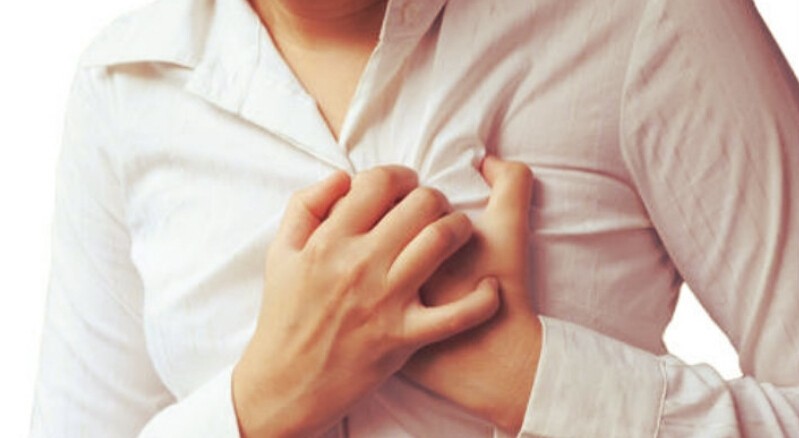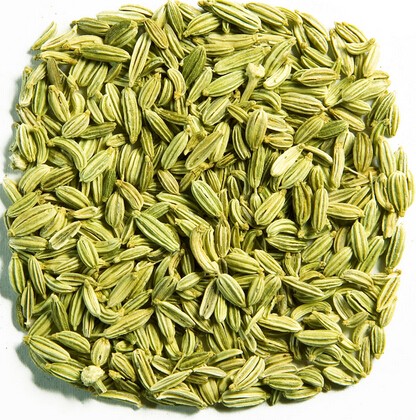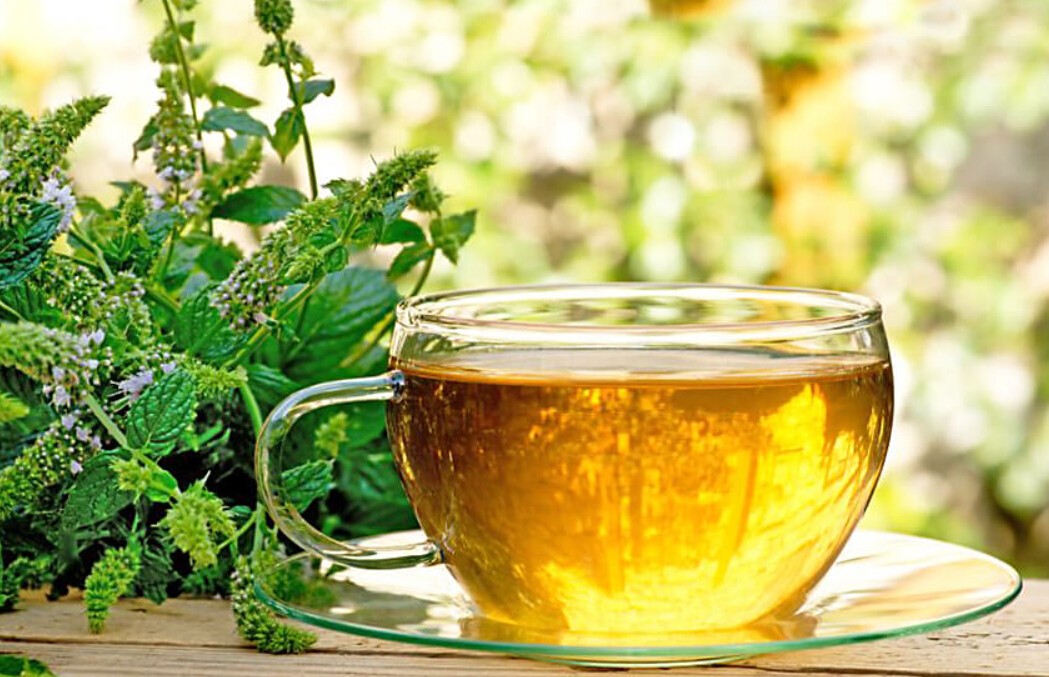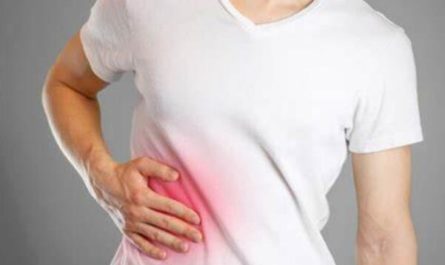Gas pain in the chest can be uncomfortable and distressing. It can cause discomfort and sometimes even mimic symptoms of more serious conditions. While over-the-counter medications can provide relief, many people prefer natural remedies. This article will explore 14 natural remedies that can help you get rid of gas pain in the chest. These remedies are safe, effective, and easily incorporated into your daily routine.

Common Causes of Gas Pain in the Chest
Excessive gas in the chest can be caused by various factors, ranging from dietary choices to medical conditions. Below are some of the most common causes:
1. Swallowed Air
Swallowing excess air, also known as aerophagia, can lead to gas buildup in the digestive system. This can occur when eating or drinking too quickly, chewing gum, smoking, or talking while eating. The accumulated gas can cause bloating, discomfort, and chest pain.
2. Gastroesophageal Reflux Disease (GERD)
GERD is a chronic condition in which stomach acid flows back into the esophagus, causing irritation and inflammation. This can result in chest pain, heartburn (burning sensation in the chest), regurgitation of acid or food, and excessive gas. The pressure from the gas can contribute to discomfort in the chest area.
3. Hiatal Hernia
A hiatal hernia occurs when a portion of the stomach protrudes upward through the diaphragm, the muscle that separates the chest cavity from the abdominal cavity. This can weaken the barrier between the stomach and the esophagus, leading to acid reflux and chest pain. Bloating and gas can also be associated with a hiatal hernia.
4. Overeating or Eating Gas-Producing Foods
Consuming large meals or foods that are known to produce gas can contribute to gas pain in the chest. Foods such as beans, lentils, broccoli, cabbage, onions, and carbonated beverages, can cause increased gas production. The accumulated gas can cause bloating, pressure, and discomfort in the chest.
5. Irritable Bowel Syndrome (IBS)
IBS is a chronic digestive disorder characterized by abdominal pain, changes in bowel habits (diarrhea, constipation, or both), and bloating. Gas accumulation and discomfort are common symptoms of IBS. The exact cause of IBS is unknown, but it is believed to involve abnormalities in the gut-brain axis and increased sensitivity of the intestines.
6. Constipation
When stool builds up in the colon, it can cause bloating and gas. The pressure from the trapped gas can result in chest pain or discomfort. Constipation can be caused by factors such as a low-fiber diet, lack of physical activity, certain medications, or underlying medical conditions.
7. Gallbladder Issues
Gallstones or inflammation of the gallbladder can cause chest pain and discomfort, which may be accompanied by gas. The gallbladder is responsible for storing and releasing bile to aid in digestion.
When there is an issue with the gallbladder, such as the presence of gallstones or inflammation (cholecystitis), it can lead to pain in the chest area and digestive symptoms.
8. Peptic Ulcer Disease
Peptic ulcers are open sores that develop on the lining of the stomach or the upper part of the small intestine. Gas pain in the chest can be a symptom of this condition.
Peptic ulcers are often caused by infection with Helicobacter pylori bacteria or the use of nonsteroidal anti-inflammatory drugs (NSAIDs) such as ibuprofen or aspirin.
9. Anxiety and Stress
Emotional stress and anxiety can affect digestion and lead to increased gas production. The gut-brain connection plays a significant role in digestive health, and stress can disrupt the normal functioning of the digestive system. This can result in symptoms such as bloating, gas, and chest discomfort.
10. Medications
Certain medications can cause gas-related chest pain as a side effect. Nonsteroidal anti-inflammatory drugs (NSAIDs), antibiotics, laxatives, and medications that contain sorbitol or fructose can contribute to increased gas production and discomfort in the chest area.

14 Natural Remedies to Get Rid of Gas Pain in the Chest
Dealing with gas pain in the chest can be uncomfortable, but several natural remedies can provide relief. Here are 14 natural remedies to help alleviate gas pain in the chest:
1. Peppermint Oil
Peppermint oil contains an active compound called menthol, which has antispasmodic properties. It helps relax the muscles of the gastrointestinal tract, including the esophagus, stomach, and intestines, reducing spasms and relieving gas pain in the chest.
- Purchase enteric-coated peppermint oil capsules from a reputable source.
- Take one capsule with a glass of water before or after meals, as directed on the package.
- Alternatively, you can drink peppermint tea by steeping fresh or dried peppermint leaves in hot water for 10-15 minutes. Strain and drink the tea.
2. Chamomile Tea
Chamomile tea has anti-inflammatory properties that can help soothe the digestive system and reduce inflammation in the gastrointestinal tract. This can alleviate gas pain and promote digestion, relieving discomfort in the chest.
- Boil water and pour it over a chamomile tea bag or dried chamomile flowers in a cup.
- Allow the tea to steep for 5-10 minutes.
- Remove the tea bag or strain the tea if using loose chamomile flowers.
3. Ginger
Ginger contains compounds called gingerols and shogaols, which have anti-inflammatory and carminative properties. It helps relax the gastrointestinal muscles, reduces gas formation, and promotes digestion. this can help provide relief from gas pain in the chest.
- Peel and slice a small piece of fresh ginger.
- Chew on the ginger slices slowly after meals or whenever you experience gas pain.
- Alternatively, you can make ginger tea by boiling sliced ginger in water for 10-15 minutes. Strain and drink the tea.

4. Fennel Seeds
Fennel seeds contain volatile oils that have carminative properties. These oils help relax the muscles of the gastrointestinal tract, reduce gas, and alleviate bloating and gas pain in the chest.
- Take a teaspoon of fennel seeds.
- Chew on the fennel seeds slowly after meals or whenever you experience gas pain.
- Alternatively, you can make fennel tea by steeping a teaspoon of fennel seeds in hot water for 10-15 minutes. Strain and drink the tea.
5. Activated Charcoal
Activated charcoal has adsorbent properties, meaning it can bind to and trap excess gas in the digestive system. By absorbing the gas, activated charcoal helps relieve gas pain and discomfort in the chest.
- Purchase activated charcoal capsules or powder from a reputable source.
- Follow the recommended dosage instructions on the package.
- Take the activated charcoal capsules or mix the powder with water and drink it to help relieve gas pain in the chest.
6. Warm Compress
Applying a warm compress to the chest area helps relax the muscles and improve blood circulation. This can help relieve tension and discomfort caused by trapped gas, providing temporary relief from gas pain in the chest.
- Fill a hot water bottle with warm (not boiling) water or soak a towel in warm water.
- Place the hot water bottle or towel on the chest area where you feel the gas pain.
- Leave the compress on for 10-15 minutes to help relax the muscles and alleviate discomfort.
7. Gentle Exercise
Engaging in light physical activity stimulates digestion and helps move gas through the gastrointestinal tract. Exercise also helps relax the muscles and reduces gas buildup, providing relief from chest pain caused by gas.
- Engage in light physical activity such as walking, gentle yoga, or stretching.
- Aim for at least 30 minutes of exercise daily to stimulate digestion and relieve gas pain in the chest.
8. Probiotics
Probiotics are beneficial bacteria that support a healthy gut microbiome. They help improve digestion, reduce gas production, and maintain a balanced gut environment, reducing gas pain and discomfort in the chest.
- Choose a reputable probiotic supplement that contains a variety of beneficial bacteria strains.
- Follow the recommended dosage instructions on the package.
- Alternatively, consume foods rich in probiotics such as yogurt, kefir, sauerkraut, or kimchi to help improve gut health and reduce gas.

9. Peppermint Tea
Peppermint tea, similar to peppermint oil, contains menthol, which has antispasmodic properties. Drinking peppermint tea helps relax the muscles of the gastrointestinal tract, reducing spasms and relieving gas pain in the chest.
- Boil water and pour it over a peppermint tea bag or dried peppermint leaves in a cup.
- Allow the tea to steep for 5-10 minutes.
- Remove the tea bag or strain the tea if using loose peppermint leaves.
- Drink the peppermint tea after meals or whenever you experience gas pain in the chest.
10. Cumin Seeds
Cumin seeds contain compounds that have carminative properties, helping to reduce gas and bloating. Chewing on cumin seeds or drinking cumin tea can promote digestion and alleviate chest pain caused by gas.
- Take a teaspoon of cumin seeds.
- Chew on the cumin seeds slowly after meals or whenever you experience gas pain.
- Alternatively, you can make cumin tea by steeping a teaspoon of cumin seeds in hot water for 10-15 minutes. Strain and drink the tea.
11. Apple Cider Vinegar
Apple cider vinegar helps improve digestion by stimulating the production of stomach acid and digestive enzymes. It can also help restore the balance of stomach acid, reducing gas production and relieving gas pain in the chest.
- Mix one tablespoon of raw, unfiltered apple cider vinegar in a glass of warm water.
- Drink the mixture before meals to prevent gas buildup and alleviate gas pain in the chest.

12. Lemon Water
Drinking warm lemon water stimulates digestion and promotes the release of digestive enzymes. It helps improve digestion and reduces gas buildup, providing relief from gas pain in the chest.
- Squeeze the juice of half a lemon into a glass of warm water.
- Drink the warm lemon water first thing in the morning on an empty stomach to stimulate digestion and reduce gas pain.
13. Papaya
Papaya contains enzymes, such as papain, that aid digestion and help break down proteins. Consuming papaya or drinking fresh papaya juice can improve digestion, reduce gas production, and alleviate chest pain caused by gas.
- Choose a ripe papaya and cut it into slices or cubes.
- Eat a few slices of papaya as a snack or drink fresh papaya juice to help alleviate gas pain in the chest.
14. Avoid Trigger Foods
Gas pain in the chest can be triggered by certain foods that are known to cause gas and bloating. Avoiding or limiting the consumption of these trigger foods can help prevent gas buildup and reduce chest pain associated with gas.
- Identify foods that trigger gas and bloating for you.
- Avoid or limit the consumption of these trigger foods to prevent gas buildup and chest pain.
How to Prevent Gas Pain in the Chest?
Here are some tips to prevent getting excess gas:
- Eat slowly: Eating too quickly can cause you to swallow air, contributing to excess gas. Take your time eating and chew your food thoroughly to help prevent swallowing air.
- Avoid certain foods: Certain foods can cause excess gas, such as beans, broccoli, cabbage, onions, and carbonated beverages. Limit your consumption of these foods if you are prone to excess gas.
- Avoid chewing gum: Chewing gum can also cause you to swallow air, contributing to excess gas.
- Stay hydrated: Drinking plenty of water can help prevent constipation, contributing to excess gas.
- Exercise regularly: Regular exercise can help to improve digestion and prevent constipation, which can contribute to excess gas.
- Manage stress: Stress can affect digestion and contribute to excess gas. Try to manage stress through relaxation techniques such as deep breathing, meditation, or yoga.
- Try probiotics: Probiotics are beneficial bacteria that can help to improve digestion and reduce gas. Consider adding probiotic-rich foods such as yogurt, kefir, or sauerkraut to your diet or taking a probiotic supplement.
When to see a doctor?
It is important to consult a healthcare professional if you experience the following symptoms related to gas pain in the chest:
- Severe or persistent chest pain that does not improve with natural remedies.
- Difficulty swallowing or breathing.
- Chest pain accompanied by dizziness, lightheadedness, or fainting.
- Presence of blood in vomit or stool.
- Unexplained weight loss.
- Chest pain that radiates to the jaw, neck, or arm.
- History of heart disease or other cardiovascular conditions.
- Symptoms that interfere with daily activities and quality of life.
- If you are unsure about the cause of your symptoms or if natural remedies do not provide relief.






